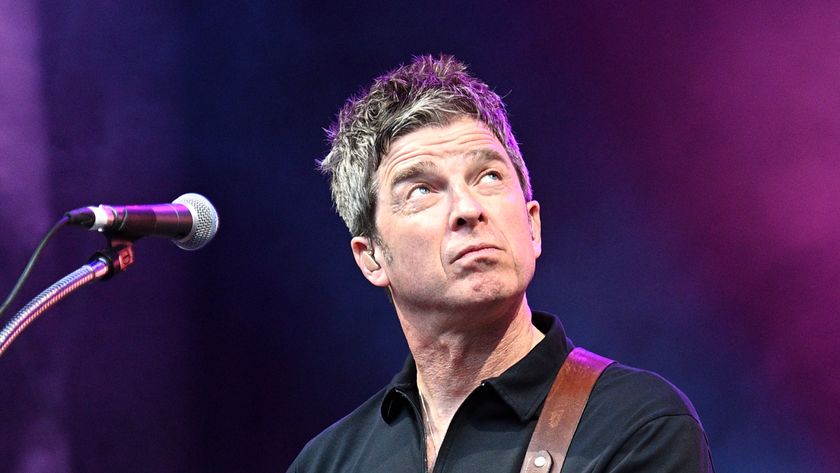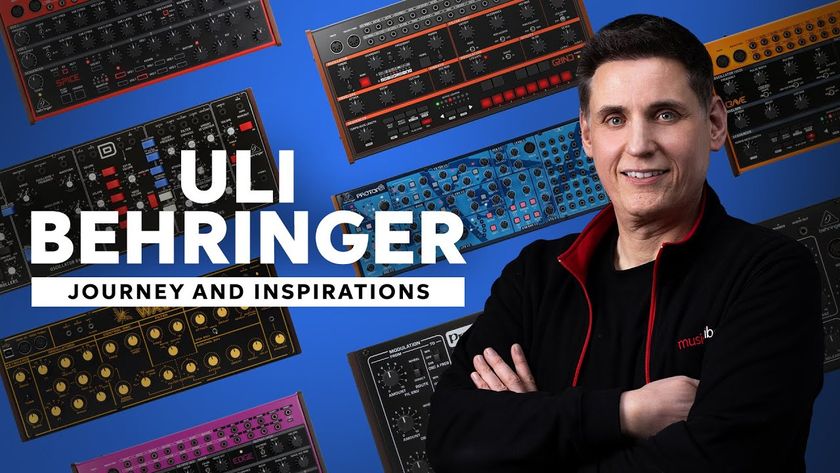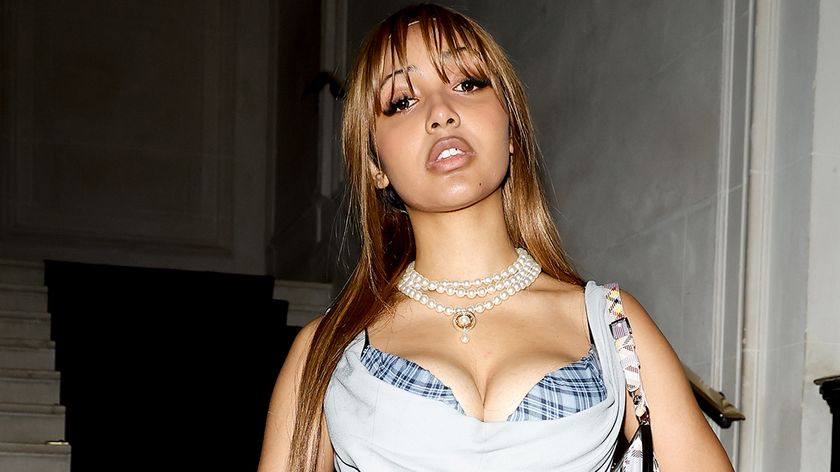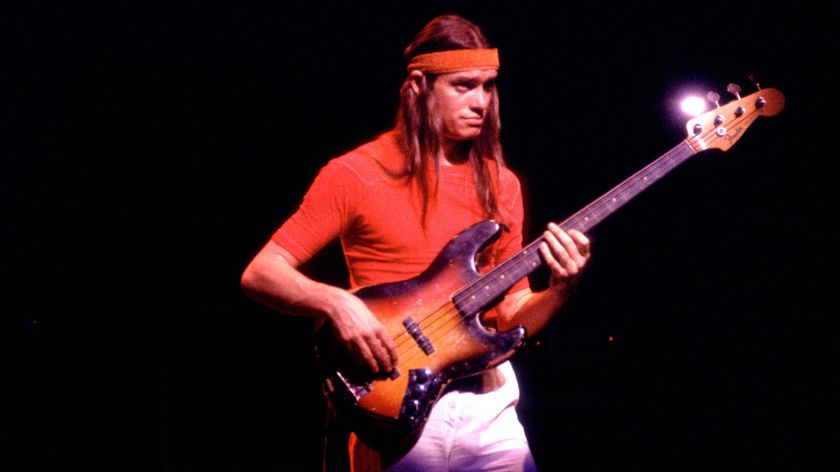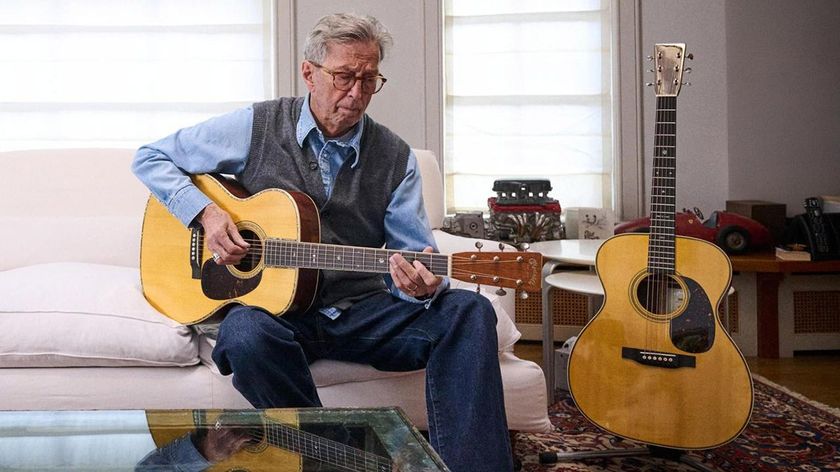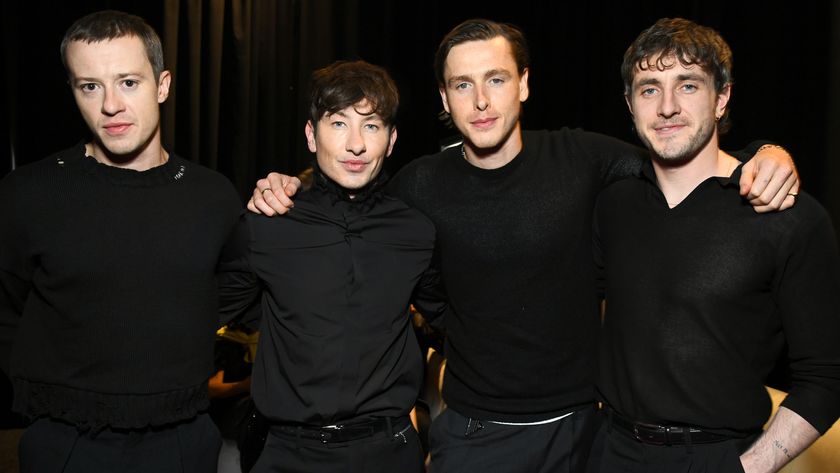In pictures: Luke Solomon's studio
Future Music visits his London studio
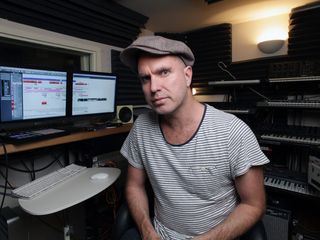
Intro
Through his DJ sets, club nights, label releases, chart hits, productions and collaborations, Luke Solomon has made his mark on UK Dance music across the board over the past two decades. As a co-founder of Classic Records with Derrick Carter – the label that introduced DJ Sneak, Tiefschwarz and Isolée, among many others – and Freaks – the band that reached number nine in the UK charts with their dark bass-driven club hit The Creeps – his portfolio is vast and varied.
Luke's ability to transcend trends and remain independent while enjoying chart success makes him comfortable in his musical skin, trusting his instinct – a trait that, coupled with experience, landed him the role as Creative Artistic Consultant for Dance music heavyweights Defected.
Now he's back collaborating as Freaks, releasing another bass-driven gem in Black Shoes White Socks on Hot Creations last year, and is on the verge of dropping his latest solo album Timelines on Classic on April 29th. FM visited his home studio in London to get his story, his take on evolving studio tech and the state of the Dance music industry...
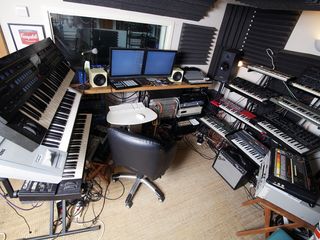
The studio
“In the studio I love the API [Lunchbox] – I can hear exactly what the pre on that [512c] does as a sound and it’samazing. An API desk is definitely on my wish list. One thing I’ve probably done more than anything else in my engineering career is record vocals. I’ve done it from a really rudimentary way, sticking a Røde NT2 into a TL Audio Ivory and not knowing what to turn on or off, putting too much limitingon, things like that. Now, I know I can run my Beyerdynamic [M130] mic into it and I know what I’m gonna get.
"Right now I’m working on a project called Mother Rose with a guy called Andy Neal. He’s a really talented guitarist and has been for twenty or thirty years, and when we record we usehe shittest instruments, in the shittest environments into the shittest things; because that’s the result we want. Like I said, when you’re working alone, you tend to analyse and over-think it."
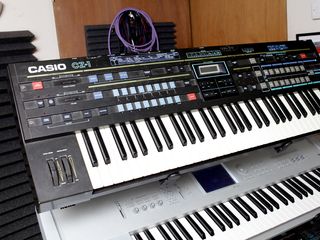
Casio CZ-1
“This is part of my Wally Badarou phase. I looked into a lot of the instruments he played on a lot of stuff in the ’80s and these Casios were part of that. That also goes for another hero, Mark Mothersbaugh, he’s an avid collector.”
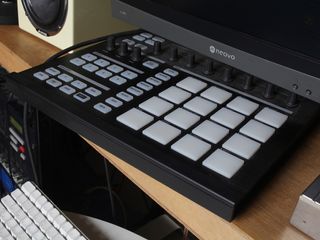
Native Instruments Maschine
“I bought this when it first came out and it added a whole different work approach to my music. Revolutionary piece of kit, especially when used with outboard drum machines and your own samples. I’m a huge fan."
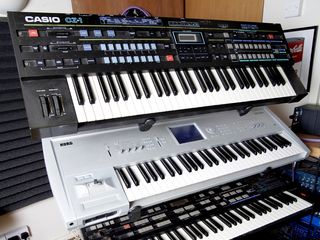
Korg Triton
“Below the CZ-1 is my workstation and MIDI keyboard – I use this a lot to replicate live samples before I send them off to musicians to get stuff replaced.”
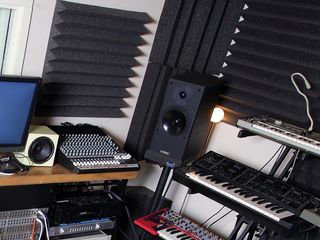
PMC TB2s
"Passive monitors that Justin and me bought many many years ago. I have got through a whole lot of tweeters, and have yet to have them made active. BUT: I love them.”
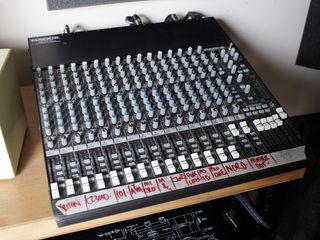
Mackie 1606
“A cheap way of adding tracking to your setup. I run all the synths through it and do some minor EQing also.”
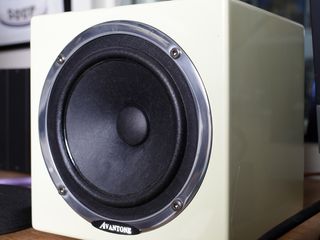
Avantones
“Otherwise know as Horror Tones. They’re great for mixing mid-range and vocals on, and for checking final mix downs.”
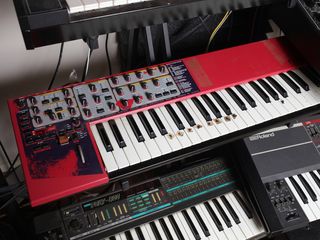
Nord Lead
“The original Freak machine. Justin and me bought this when we could first afford an expensive synth. It’s been around the world with us and has made some of our better-known noises. It still holds a special place in my heart, especially when you use the extra cards, and warm it up.”
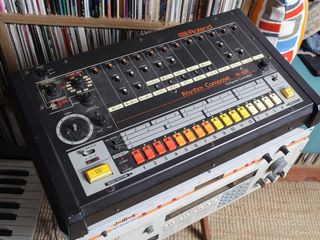
Roland TR-808
“This and the 303 are my long-term loaners from The Beloved, and a staple part of my productions. Still waiting for Jon to ask for them back, which may happen one day."
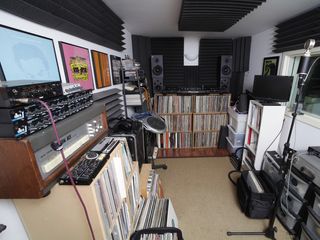
DJ gear
“At home I still have turntables because I enjoy playing records. All the early tracks for Classic [Records] were on acetate and that’s what I’d play, lugging them around. They’d sound great for like a minute and then were ruined.
"Then I started on CDs – there was a Denon CD player at Bar Rumba, but I also played from cassettes! As more music became available digitally, CDs just made sense. Now, for the last year and a half I’ve been using USB on [Pioneer] CDJ-2000s, which I love. I feel like a massive cheat walking into the club with a tiny USB stick! [Laughs]. I still gravitate back to records, and at home I love playing them. The kids like it too, they love watching them and pulling them out. I’m kind of torn between two lovers. If I could afford to travel with vinyl as well as taking USBs I would. I use Serato and Traktor every now and again. I learned in case I turned up at some club and they don’t have 2000s.
“I’m not one of those people that says ‘Oh no, you have to play records – that was the original form of DJing’. If you play good music, it doesn’t matter what format it’s on. The skill of being a DJ is making people dance. Be it for two, three, five or seven hours, take them on a journey, and have that depth of knowledge of music – all kinds of music. That’s the skill, for me.
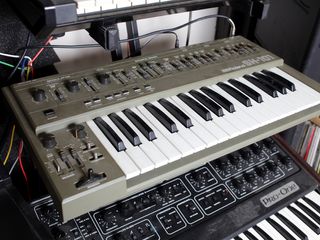
Roland SH-101
“I was working in a record shop at the time with Ty Holden and someone came in selling a Roland SH-101 for about £150. I bought it but there wasn’t much else I could do with it, it was the only thing I had. It wasn’t until I met Justin Harris [producer, DJ and one-half of Freaks along with Luke] that I thought I wanted to start making more music and buying more equipment of my own."
Don't forget you can catch Luke Solomon at our Producer Sessions Live producer event in Manchester on 28th September 2013.
Luke Solomon’s new album Timelines is out now on Classic. Visit his official Facebook page for DJ dates and more info: www.facebook.com/lukesolomon

Future Music is the number one magazine for today's producers. Packed with technique and technology we'll help you make great new music. All-access artist interviews, in-depth gear reviews, essential production tutorials and much more. Every marvellous monthly edition features reliable reviews of the latest and greatest hardware and software technology and techniques, unparalleled advice, in-depth interviews, sensational free samples and so much more to improve the experience and outcome of your music-making.


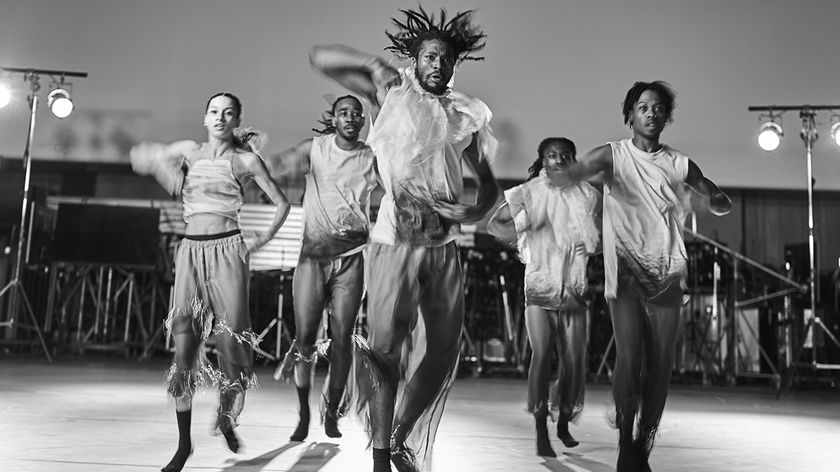
Refurbished Abbey Road Studio One reopens with evening of "boundary-pushing expressive dance" that blends styles from ballet to hip-hop and krump - and a new mixing desk

“I was like, ‘man - this is the energy’”: Billie Eilish’s mix engineers reveal the star's “favourite part” of her smash hit, Birds Of A Feather

Refurbished Abbey Road Studio One reopens with evening of "boundary-pushing expressive dance" that blends styles from ballet to hip-hop and krump - and a new mixing desk

“I was like, ‘man - this is the energy’”: Billie Eilish’s mix engineers reveal the star's “favourite part” of her smash hit, Birds Of A Feather
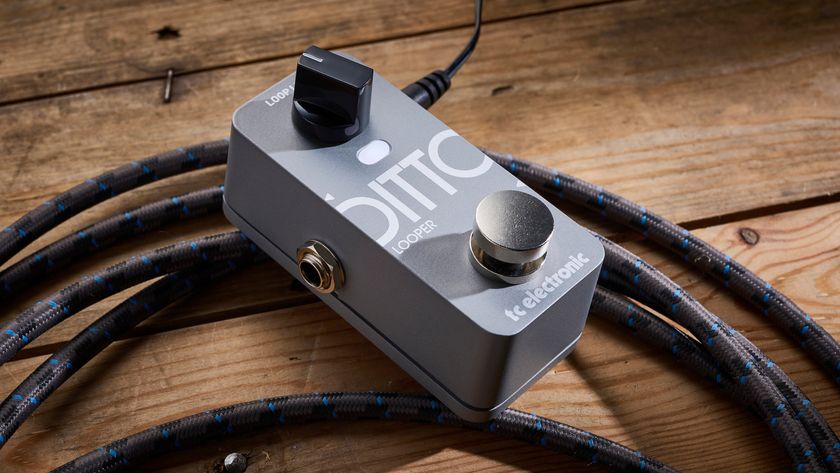


![Chris Hayes [left] wears a purple checked shirt and plays his 1957 Stratocaster in the studio; Michael J. Fox tears it up onstage as Marty McFly in the 1985 blockbuster Back To The Future.](https://cdn.mos.cms.futurecdn.net/nWZUSbFAwA6EqQdruLmXXh-840-80.jpg)
